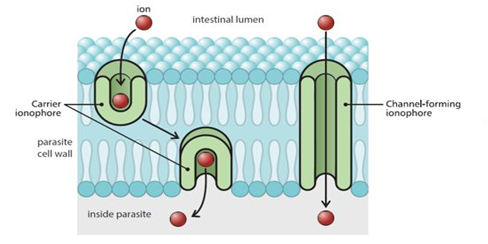DSM, a global purpose-led science-based company, announces that it has received a positive European Food Safety Authority (EFSA) opinion for the use of its novel methane-reducing feed additive for ruminants, Bovaer®, in the European Union. The EFSA opinion confirms that the feed additive reduces enteric methane emissions from dairy cows and is safe for the animal and the consumer. This opinion progresses the application to the final stage of approval from the European Commission Standing Committee on Plants, Animals, Food and Feed. European Commission approval would allow DSM to start market…
Category: Trending
GST cannot be collected on Eggs Transport: GST Authority of Advance Rulings
The Karnataka bench of the GST Authority of Advance Rulings may have put an end to the debate on whether or not eggs are agricultural produce. The AAR was approached by SAS Cargo, which transports consignments across India using leased railway containers. It sought clarity on the applicability of Goods and Services Tax (GST) on the transportation of eggs. The AAR said, in view of notification No. 12/2017 dated June 28, 2017, eggs are indeed agricultural produce. Thus, the transportation of eggs will not attract GST. According to this notification, agricultural produce means any…
25th Anniversary of World Egg Day 2021 – Celebrations
Eggs for all – A nutrient goldmine! Srinivasa Farms marked the celebrations of the 25th Anniversary of World Egg Day with various activities in the public domain & multiple campaigns running across the social media platforms to create awareness about the goodness of eggs. The celebrities, health and fitness experts egg endorsement videos have garnered an incredible amount of engagement with likes and shares by the audience on social media platforms. The proteins contained within eggs are highly important in the development of the muscles the fitness enthusiasts at the gyms have endorsed the importance of adding eggs…
SPACE 2020: an adapted edition to the context
For its 34th edition, from September 15 to 18, SPACE 2020 was held in an unprecedented and essentially digital version. The Show could not take place in its usual form due to the Covid-19 pandemic. After the decision of its cancellation in its physical form announced in May, the organizers have implemented and strengthened many digital tools to maintain the link between members of its community, exhibitors and visitors. SPACE traditionally brings together more than 1,400 exhibitors, a third of whom are international, and more than 100,000 visitors, including 15,000…
Ionophores – Past, Present and Future
Coccidiosis, caused by protozoan parasites of the genus Eimeria, is still one of the most widespread and difficult to manage poultry diseases, causing considerable economic losses especially in the broiler industry. Intensification of commercial poultry production has relied on effective prophylactic control of coccidiosis. The sequential introduction of sulfa-drugs, synthetic anticoccidials and then ionophores changed this, facilitating rapid increases in the scale and intensity of poultry production. Current levels of poultry production would not be sustainable in the absence of effective anticoccidial control. Synthetic compounds Synthetic compounds were the first…
Feed Sanitation
Heat Treatment as a Method for the Decontamination of Poultry Feeds Colin Russell, Consultant Microbiologist INTRODUCTION The traditional methods of reducing microbial contamination in feed raw materials have been compromised within the EU recently with the ban on the incorporation of formaldehyde as a feed additive (PT4). Within the EU this is being linked to an increase in Salmonella isolations. With the potential for reduced chemical use to control microbial contamination in feed to be rolled out in other countries it is important that suitable alternative methods to control contamination…
Effects of Phytogenic Feed Additives on Bird Health
Andreas S. Muller, Senior Manager R&D Poultry, Delacon Biotechnik GmbH. From January 1st, 2006 onwards in the European Union (EU) antibiotics were banned as growth promoting feed additives. As the first and currently single Asian country the Republic of South Korea followed the EU example in 2011. It can be expected that numerous further big countries in the world will also remove feed antibiotics within the next few years. The protection of consumers health is the main reason for these decisions. However, the removal of antibiotics at the same time…
BIOMIN Announces Positive EFSA Opinion for FUMzyme® for Fermenting Feed in All Species
Leading animal nutrition firm BIOMIN has reached a key step in the EU registration of FUMzyme®, the only commerciallyavailable mycotoxin-deactivating enzyme and component of Mycofix®, for application in fermenting feed including silages. On 21July 2020, the European Food Safety Authority (EFSA) Panel on Additives and Products or Substances used in Animal Feed (FEEDAP) published a favorable Scientific Opinion on the safety and efficacy of FUMzyme® in fermenting feeds in all species. FUMzyme®,a fumonisin esterase, is apurified enzyme that detoxifies fumonisins –a category of mycotoxins produced by Fusarium fungi— into non-toxic…









